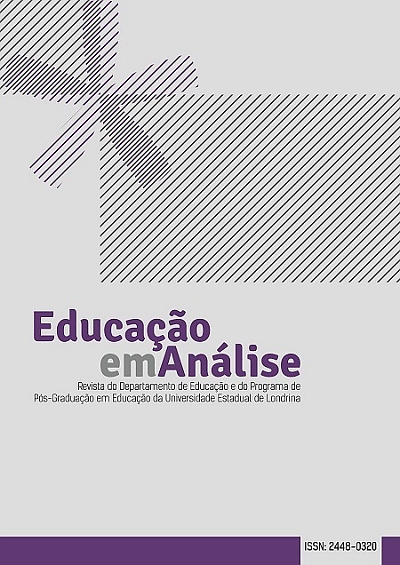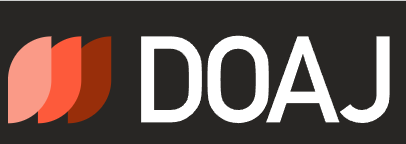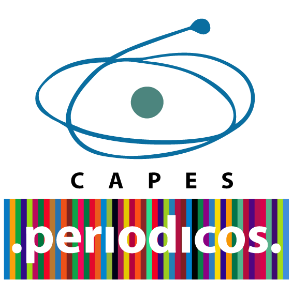Active methodologies and the construction of digital portfolios: indicators of interaction, autonomy and new practices in teacher training
DOI:
https://doi.org/10.5433/1984-7939.2017v2n2p303Keywords:
Active methodology, Teacher training, Digital Portfolios, AutonomyAbstract
This article is an investigation about the use of active methodologies in the construction of digital portfolios, as elements of signification in the teaching and learning processes, more specifically in the degree course in Mathematics of the Federal Institute of Bahia - Campus Camaçari. Thus, through a case study, we proposed the survey of interaction indicators among students, teaching practice and digital resources for the expansion of a didactic discussion. This discussion is contextualized through the theoretical-methodological conceptions of autonomy, problematization and evaluation in virtual learning spaces. The study pointed out that, in the presence of multi-semiotic and multilevel subjects, it is necessary to educate for multiplicity of methodologies and didactic critique, therefore there is no way to think of teaching and learning processes in a unitary and depositary way, without the inclusion of collaboration, problematization and autonomy of students. However, it is urgent to disseminate the active methodologies in the practice of the training of future teachers, since rethinking the training process encourages them to build a different, more dynamic and problematizing scenario for their future students.Downloads
References
BERBEL, N. A. N. As metodologias ativas e a promoção da autonomia de estudantes. Semina: Ciências Sociais e Humanas, Londrina, v. 32, n. 1, p. 25-40, jan./jun. 2014. Disponível em: http://www.proiac.uff.br/sites/default/files/documentos/berbel_2011.pdf. Acesso em: 22 de jun. 2016.
BORGES, T.; ALENCAR, G. Metodologias ativas na promoção da formação crítica do estudante: o uso das metodologias ativas como recurso didático na formação crítica do estudante do ensino superior. Cairu em Revista, Salvador, v. 3, n. 4, p. 119-143, 2014. Disponível em: https://goo.gl/6bzDiH. Acesso em: 3 maio 2016.
FOFONCA, E. Os Blogs como Mídia Digital na Educação: diálogos possíveis. Razón y Palabra: Eurorrexión Galicia-Norte de Portugal, n. 74, nov. 2010/ ene. 2011. Disponível em: http://www.razonypalabra.org.mx/N/N74/VARIA74/06FofoncaV74.pdf. Acesso em: 1 jul. 2016.
FREIRE, Paulo. Pedagogia da autonomia: saberes necessários à prática educativa. 3. ed. São Paulo: Paz e Terra, 2008.
MORAN, J. M. Metodologias Inovadoras com Tecnologias. Entrevista a João Matar. 2014. Disponível em: https://www.youtube.com/watch?v=pKi2K_xcTGM&feature=youtu.be. Acesso em: 1 jul. 2016.
MORAN, J. M. Mudando a educação com metodologias ativas. Ponta Grossa: Foca Foto-PROEX/UEPG, 2015. (Coleção Mídias Contemporâneas: Convergências Midiáticas, Educação e Cidadania: aproximações jovens, 3). Disponível em: http://www2.eca.usp.br/moran/wpcontent/uploads/2013/12/mudando_moran.pdf. Acesso em: 1 jul. 2016.
POLAK, Y. N. S. A avaliação do aprendiz em EAD. LITTO, F. M.; FORMIGA, M. Educação a Distância: o estado da arte. São Paulo: Pearson. 2009. p. 153-160. Disponível em: http://www.abed.org.br/arquivos/. Acesso em: 20 jun. 2016.
SÁ-CHAVES, I. Formação, conhecimento e supervisão: contributos nas áreas da formação de professores e de outros profissionais. Aveiro: Universidade de Aveiro, 2000. (Estudos temáticos 1).
SERAFIM, M. L. O. Portfólio digital como tecnologia no processo de avaliação. In: CONGRESO IBEROAMERICANO DE CIENCIA, TECNOLOGÍA, INNOVACIÓN Y EDUCACIÓN, 2014, Buenos Aires. Disponível em: http://www.oei.es/congreso2014/memoriactei/1397.pdf. Acesso em: 20 jun. 2016.
Downloads
Published
How to Cite
Issue
Section
License
Copyright (c) 2017 Educação em Análise

This work is licensed under a Creative Commons Attribution 4.0 International License.
Os artigos publicados na Revista Educação em Análise estão sob a Licença Creative Commons Atribuição 4.0 Internacional, garantindo Acesso Aberto. Deste modo, os autores mantêm os direitos autorais de seus trabalhos e, em caso de republicação, solicita-se que indiquem a primeira publicação nesta revista. Essa licença permite que qualquer pessoa leia, baixe, copie e compartilhe o conteúdo, desde que a devida citação seja feita. Além disso, autoriza a redistribuição, adaptação e criação de obras derivadas em qualquer formato ou meio, incluindo uso comercial, desde que a atribuição à revista seja mantida.
A revista se reserva o direito de efetuar, nos originais, alterações de ordem normativa, ortográfica e gramatical, com vistas a manter o padrão culto da língua e a credibilidade do veículo. Respeitará, no entanto, o estilo de escrever dos autores. Alterações, correções ou sugestões de ordem conceitual serão encaminhadas aos autores, quando necessário.
As opiniões emitidas pelos autores dos artigos são de sua exclusiva responsabilidade.
























